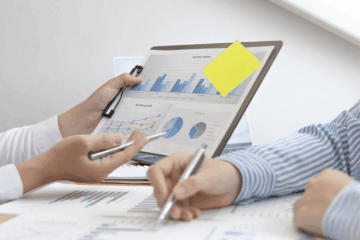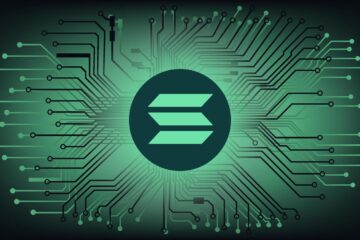A Quick Checklist For Selecting the Best ERP Solution

Imagine that a customer calls your company and gets tossed back and forth in a game of “telephone ping-pong.” From the CSR to shipping to billing back to the CSR.
Is there a way to break this awful customer experience?
Pop quiz — name the technology that had its conception in the early 1970s, birth in the 1990s, and transformed the way we do business after the 2000s.
We can forgive you if you answered smartphones and the internet. However, nothing has changed the way we run our businesses as much as an ERP.
Are you ready to increase security, reduce costs, and improve your business in every possible metric? If so, then keep reading to learn how to find the best ERP solution for your business.
What Is ERP Software and What Does It Do?
Enterprise resource planning (ERP) software is a comprehensive package to organize and plan your business — internally and externally. Your COO, CFO, CIO, and other C-level executives should all be on board with your ERP since it forms the core of the operations of your business.
Your company and an ERP service like IFS partner up in order to give you the best ERP solution possible.
ERP affects financials, which your CFO would be most concerned about because of regulatory compliance. Your CTO would be concerned about security and functionality, which a cloud ERP service provides in spades compared to an on-premise server room. Your COO and CHRO would be most concerned about how ERP solutions allow everything to run smoothly and to manage your human resources effectively.
Every corner of your business touches an ERP, no matter the size of your business. In short, it standardizes and connects all parts of your business together so they communicate and work seamlessly.
ERPs even encompass your CRM and SRM components.
Cloud systems, edge computing, and IoT (internet of things) have made ERP intelligent. A company’s need to coordinate, react to changes, and predict future needs is well served by the ERPs under development today.
What Your ERP Solution Should Include
Every business is different, but your ERP solution should have common elements no matter the industry. The functional areas your ERP software should provide— whether based on-premise, cloud, or SaaS — are as follows.
- Customer relationship management (CRM)
- Data services
- Project management
- Supply chain management
- Order processing
- Human resources
- Financial accounting
- Management accounting
- Manufacturing
Supply chain management, financial accounting, and project management are very closely bound processes that benefit from the clear communication of ideas and information.
If you don’t have project costing and resource planning plugged into your supply chain management you could end up dead in the water waiting on raw materials in manufacturing. If your accounting department can’t monitor the flow of receivables and payables you could end up missing out on receiving payment or being late on payments.
The right ERP solution for your company puts the right data into the right hands at the right time.
Your ERP Solution
Not every company needs a manufacturing module or a supply chain module in their ERP. The right ERP solution will allow you to mix and match modules and functionality that are right for your business management.
Need to get more advice about how to ween your business off of isolated spreadsheets and start getting connected? Keep browsing our articles to learn more about current business trends and practices.










